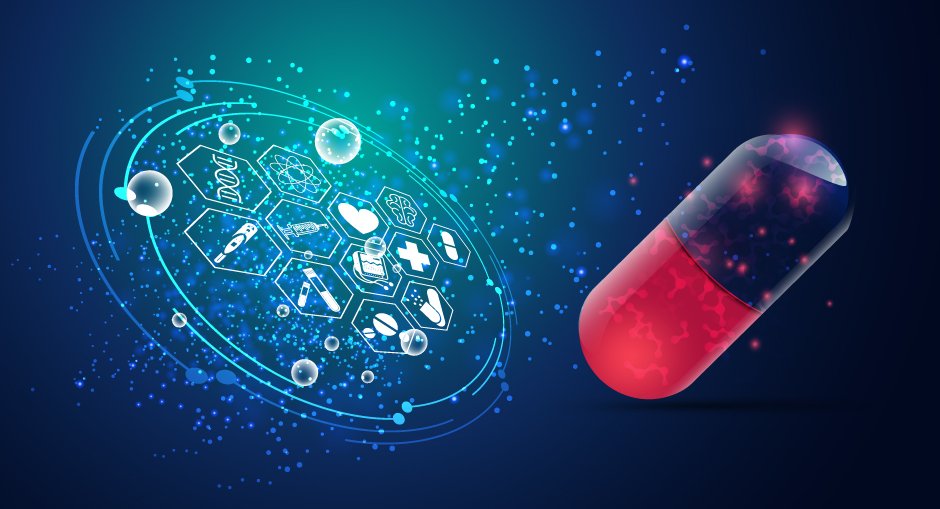A*STAR and SingHealth Collaborate on SGD$18 Million TISHUMAP Project to Transform Drug Discovery in Asia
09 July 2024 | Tuesday | News

Image Source : Public Domain
A*STAR’s Genome Institute of Singapore (GIS) has secured nearly SGD$18 million to develop an innovative data platform, TISHUMAP1. This platform is set to transform disease biomarker analysis through a cellular, location-based approach, significantly boosting drug discovery efforts across Singapore and Asia. TISHUMAP will focus on cancers, including lung, breast, colon, liver, and gastric cancers, as well as chronic kidney and fatty liver diseases. Beyond drug discovery, TISHUMAP aims to enhance diagnostic accuracy and personalize treatment plans, thereby improving patient outcomes.
The four-year collaboration will harness the expertise of A*STAR’s Bioinformatics Institute (BII), SingHealth’s specialty centers, National Cancer Centre Singapore (NCCS), and Singapore General Hospital (SGH), ranked among the world’s best hospitals. Utilizing a trimodal strategy, TISHUMAP will create a unique data resource by integrating spatial omics (SO), tissue imaging from pathology labs, and clinical data, all powered by advanced multi-modal artificial intelligence (AI).
Target discovery is a crucial yet challenging aspect of drug development. TISHUMAP aims to overcome this bottleneck by focusing on molecules involved in cell-to-cell interactions, which are pivotal in cellular growth, communication, and response to treatments. Spatial omics, a cutting-edge technology, will provide unprecedented insights into these cellular interactions within human disease samples, enabling the identification of novel drug targets.
The project will leverage the SingHealth Digital Pathology Archive (SDPA) and SingHealth Tissue Repository (STR), which house over one million microscopic tissue images and more than 20,000 well-annotated tissue samples, respectively. AI will be employed to infer and rank cell-to-cell interactions based on their correlation with de-identified clinical data and tissue image features. The top-ranking interactions will be identified as promising drug targets.
In addition to drug discovery, TISHUMAP will also facilitate the definition of disease sub-types, enabling more precise and customized treatments. The team has already made significant strides, generating large SO and single-cell datasets, and identifying two sub-types of colorectal cancer with potential implications for detection and treatment. These findings have been published in Nature Genetics (2022, 2024).
Dr. Shyam Prabhakar, Lead Principal Investigator and Senior Group Leader at A*STAR’s GIS, stated, “With our world-leading capabilities in spatial omics, biomedical science, and AI, combined with access to extensive pathology image repositories, we are confident that TISHUMAP will redefine drug target identification and drive clinical applications. This collaboration with SingHealth positions Singapore as a leader in spatial omics-driven target discovery.”
Prof. Tony Lim, Senior Consultant at SGH, emphasized, "TISHUMAP will advance patient care by introducing new AI-driven paradigms for disease prognosis and treatment, as well as identifying new drug targets. The high-resolution data and clinical-grade quality from SDPA and STR will enable the development of insightful predictions and analyses."
Assoc. Prof. Iain Tan, Senior Consultant at NCCS, added, “By leveraging advanced technology to develop TISHUMAP, we aim to uncover fundamental biological interactions driving disease phenotypes, leading to the development of new drug targets for various diseases.”
This landmark project underscores Singapore's commitment to pioneering research and innovation in the biomedical sciences, fostering a future of enhanced healthcare and transformative medical breakthroughs.
Most Read
- Innovations In Magnetic Resonance Imaging Introduced By United Imaging
- Management of Relapsed/Refractory Multiple Myeloma
- 2025 Drug Approvals, Decoded: What Every Biopharma Leader Needs to Know
- BioPharma Manufacturing Resilience: Lessons From Capacity Expansion and Supply Chain Resets from 2025
- APAC Biopharma Review 2025: Innovation, Investment, and Influence on the Global Stage
- Top 25 Biotech Innovations Redefining Health And Planet In 2025
- How Health Systems Are Reshaping Drug Adoption, Partner Models, and Market Access in 2026
- The New AI Gold Rush: Western Pharma’s Billion-Dollar Bet on Chinese Biotech
- Single-Use Systems Are Rewiring Biopharma Manufacturing
- The State of Biotech and Life Science Jobs in Asia Pacific – 2025
- Asia-Pacific Leads the Charge: Latest Global BioSupplier Technologies of 2025
- Invisible Threats, Visible Risks: How the Nitrosamine Crisis Reshaped Asia’s Pharmaceutical Quality Landscape
Bio Jobs
- Sanofi Turns The Page As Belén Garijo Steps In And Paul Hudson Steps Out
- Global Survey Reveals Nearly 40% of Employees Facing Fertility Challenges Consider Leaving Their Jobs
- BioMed X and AbbVie Begin Global Search for Bold Neuroscience Talent To Decode the Biology of Anhedonia
- Thermo Fisher Expands Bengaluru R&D Centre to Advance Antibody Innovation and Strengthen India’s Life Sciences Ecosystem
- Accord Plasma (Intas Group) Acquires Prothya Biosolutions to Expand Global Plasma Capabilities
- ACG Announces $200 Million Investment to Establish First U.S. Capsule Manufacturing Facility in Atlanta
- AstraZeneca Invests $4.5 Billion to Build Advanced Manufacturing Facility in Virginia, Expanding U.S. Medicine Production
News











